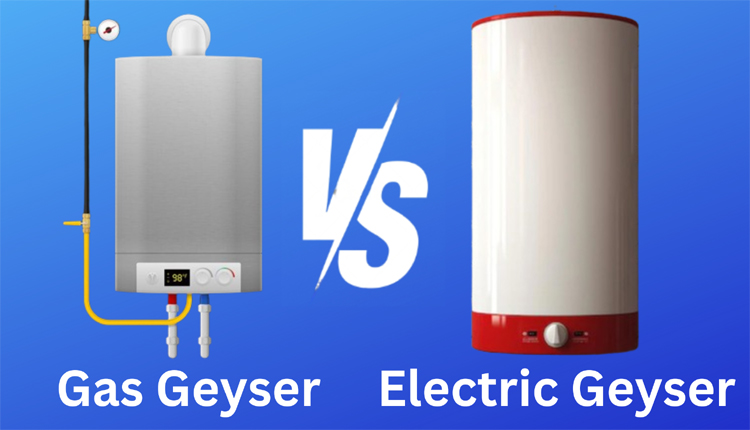When it comes to selecting a water heater for your home, both electric and gas geysers have their distinct advantages and drawbacks. The key to making the right choice lies in understanding your household’s needs and the cost implications of each option.
One of the primary benefits of electric geysers is their affordability when it comes to initial costs. They tend to have a lower starting price compared to their gas counterparts, making them an attractive choice for budget-conscious buyers. However, the running costs of electric geysers can quickly add up. Since they rely on electricity to heat water, they tend to consume a significant amount of energy, which can lead to a rise in monthly electricity bills.
Gas geysers, on the other hand, typically come with a slightly higher price tag at the point of purchase, but they prove more economical in the long run. The operating costs are lower because gas – whether in the form of LPG cylinders or piped gas – is often cheaper than electricity. This makes gas geysers a particularly cost-effective option for larger families or households that require a steady supply of hot water.
When it comes to heating speed, gas geysers have the upper hand. They can heat water quickly, making them an ideal choice for anyone who needs hot water in a hurry. In contrast, electric geysers generally take a bit more time to heat water, which may be less convenient for those on a tight schedule.
In terms of safety, electric geysers are considered relatively safe but do come with the risk of short circuits or heater malfunctions. Many modern electric geysers are equipped with safety features such as thermal cut-offs to reduce the risk of overheating. Gas geysers, meanwhile, pose a potential hazard in the form of gas leaks, though modern models now come with automatic shut-off features to improve safety.
When it comes to installation, electric geysers are much easier to set up, with minimal maintenance required. Gas geysers, however, demand a more complex installation process involving gas pipes and proper ventilation, and they also require more frequent maintenance due to their reliance on gas.
For those living in smaller households with limited hot water requirements, an electric geyser is often the better choice. It’s also ideal in areas where gas supply is limited or when dealing with the hassle of refilling gas cylinders isn’t practical. Conversely, gas geysers are better suited for larger families or households that require a constant supply of hot water. They’re also an excellent choice in regions where gas is readily available and electricity costs are high.
Choosing between a gas and electric geyser ultimately depends on balancing upfront costs, long-term expenses, and the specific needs of your home. Understanding these factors will help you make an informed decision that suits both your budget and lifestyle.



Comments are closed.